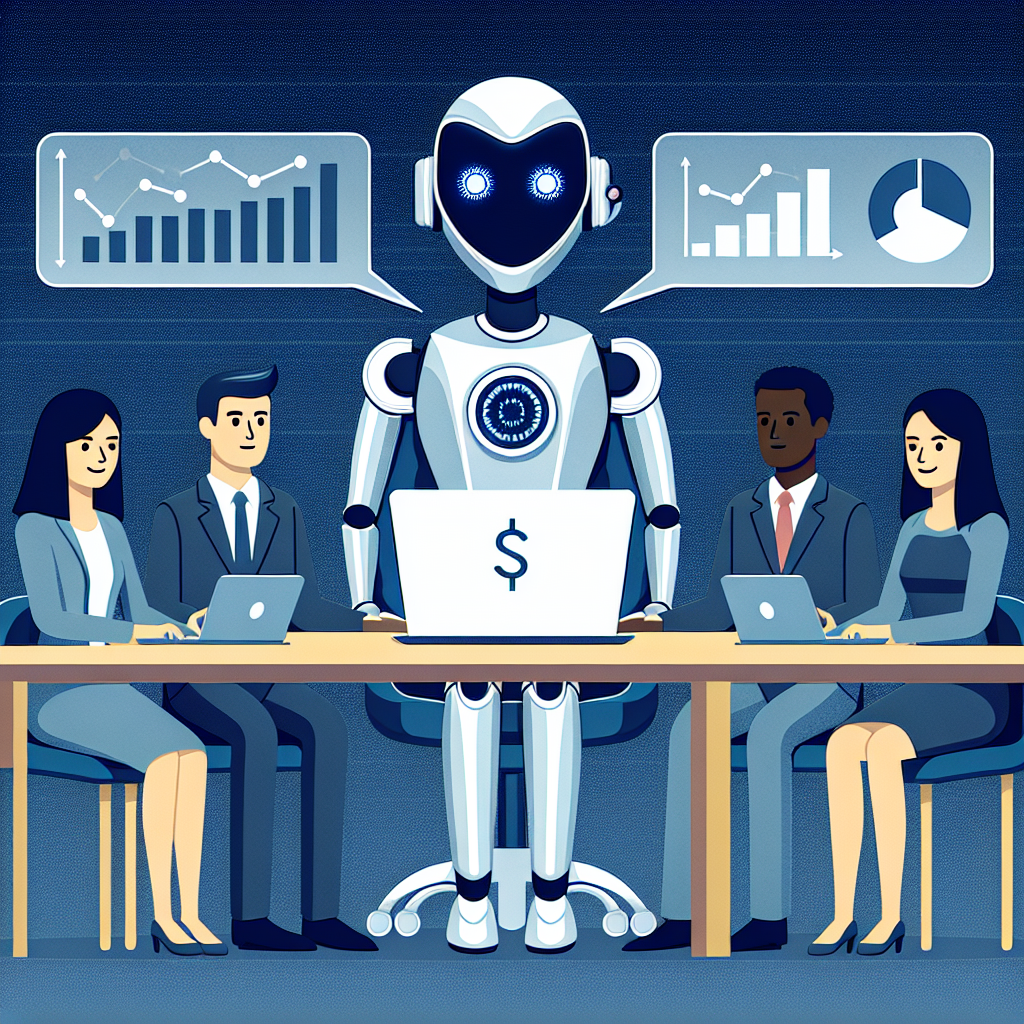In recent years, artificial intelligence (AI) has been transforming various industries, and personal finance is no exception. AI is changing the way people manage their finances, make investments, and plan for the future. This technology has the potential to revolutionize the way individuals interact with their money, providing them with personalized insights and recommendations to help them achieve their financial goals. In this article, we will explore the role of AI in personal finance and how it is reshaping the way people approach their financial well-being.
1. AI in Personal Finance:
AI has the ability to analyze vast amounts of data in real-time, enabling individuals to make more informed decisions about their finances. From budgeting and saving to investing and retirement planning, AI can provide personalized recommendations based on an individual’s financial situation and goals. For example, AI-powered apps can track spending patterns, identify areas where individuals can save money, and offer suggestions on how to improve their financial health.
AI algorithms can also help individuals make smarter investment decisions by analyzing market trends, evaluating risk factors, and predicting potential returns. This can be particularly beneficial for novice investors who may not have the knowledge or experience to navigate the complexities of the financial markets. AI can provide them with insights and recommendations to help them build a diversified portfolio and maximize their returns.
Furthermore, AI can assist individuals in planning for their retirement by analyzing their current financial situation, estimating future expenses, and recommending savings strategies. By taking into account factors such as inflation, life expectancy, and healthcare costs, AI can help individuals create a realistic retirement plan that aligns with their financial goals.
2. Benefits of AI in Personal Finance:
There are several benefits of incorporating AI into personal finance, including:
a. Personalized Recommendations: AI can provide individuals with personalized recommendations tailored to their specific financial situation and goals. This can help them make better decisions about budgeting, saving, investing, and retirement planning.
b. Real-Time Insights: AI can analyze data in real-time, providing individuals with up-to-date information about their finances and the market. This can help them stay informed and make timely decisions to optimize their financial health.
c. Automation: AI-powered tools can automate routine financial tasks, such as budgeting, bill payments, and investment management. This can save individuals time and effort, allowing them to focus on more strategic aspects of their finances.
d. Risk Management: AI can help individuals manage risk by analyzing market trends, evaluating investment opportunities, and predicting potential risks. This can help them make more informed decisions to protect their assets and achieve their financial goals.
e. Accessibility: AI-powered apps and tools are accessible to individuals from anywhere at any time, making it easier for them to manage their finances on the go. This can empower individuals to take control of their financial well-being and make better decisions about their money.
3. Common FAQs about AI in Personal Finance:
Q: How secure is AI in personal finance?
A: AI-powered tools in personal finance use advanced encryption and security protocols to protect individuals’ financial data. It is important to choose reputable and trustworthy providers to ensure the security of your information.
Q: Can AI replace financial advisors?
A: While AI can provide personalized recommendations and insights, it cannot replace the expertise and human touch of a financial advisor. AI can complement the services of a financial advisor by providing additional data and analysis to support their recommendations.
Q: How does AI predict market trends?
A: AI algorithms analyze historical data, market trends, and economic indicators to predict future market movements. By identifying patterns and correlations, AI can provide insights into potential market trends and opportunities.
Q: Are there any risks associated with AI in personal finance?
A: Like any technology, AI in personal finance comes with risks, such as data breaches, system failures, and algorithm biases. It is important for individuals to stay informed and vigilant when using AI-powered tools to manage their finances.
In conclusion, AI is playing an increasingly important role in personal finance, providing individuals with personalized insights and recommendations to help them achieve their financial goals. By leveraging the power of AI, individuals can make more informed decisions about budgeting, saving, investing, and retirement planning. As AI technology continues to evolve, it will likely reshape the way people interact with their money, empowering them to take control of their financial well-being and build a secure financial future.

